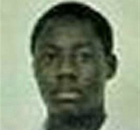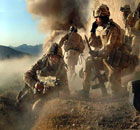Op-Ed Contributors
Nuclear-free deeds most urgent
By Zhang Tuosheng (China Daily)
Updated: 2009-12-30 07:50
 |
Large Medium Small |
More concrete action instead of verbal commitments are needed from the United States in order to make the world a community of nations free of nuclear weapons, as US President Barack Obama mapped out in an address delivered in Prague, the Czech Republic, in April.
The blueprint, the first such plan that has been drafted by a US president since the production of nuclear arms and symbolizing a major change in Washington's long-established nuclear posture, has produced positive effects on the world's "non-nuclear weapons" process over the past months. Obama's proposal has received popular support from the rest of the world, including China, a country that advocated as early as 1964, a year when it tested its first nuclear bomb, that the world's nuclear weapons should be destroyed fully and completely.
| ||||
To reduce the world's warheads and stockpiles, Obama said the US would negotiate a new Strategic Arms Reduction Treaty with Russia and would seek a new agreement by the end of this year that is legally binding and sufficiently bold. He also said he would push for further nuclear cuts in the US and Russian nuclear stockpiles and would seek to include all nuclear weapons states in this endeavor. To achieve a global ban on nuclear testing, the US president said his administration is committed to an immediate and aggressive pursuit of US ratification of the Comprehensive Test Ban Treaty.
To cut off the building blocks needed for a bomb, Obama also promised to seek a new treaty that "verifiably ends the production of fissile materials intended for use in state nuclear weapons". "If we are serious about stopping the spread of these weapons, then we should put an end to the dedicated production of weapons-grade materials that create them," Obama told the Czech audiences. In addition to this step, he also said the US would strengthen the Nuclear Non-Proliferation Treaty as a basis for cooperation.
Obama's proposals, spoken by the president of the world's largest nuclear power, are expected to play a constructive role in pushing forward the world's efforts toward a "non-nuclear weapons" target.
However, Obama's nuclear approach has encountered criticism in the international community, with some believing the US has not fundamentally changed its stance from the Bush administration's widely-abused anti-missile defense system. Obama was also accused of stopping short of talks about the non-weaponization of the outer space, an issue closely related to nuclear disarmament and nuclear arms control. In addition, Obama failed to mention a commitment "not to be first to use nuclear weapons", a stance long advocated by China and that has won extensive support among developing countries.
Back in the US, some of Obama's critics worry that his downplaying the role of nuclear weapons and pursuit of further nuclear cuts would possibly cause the US to lose its long-established nuclear prominence. Some have even groundlessly claimed that his approach would offer China opportunities to expand its nuclear arsenal and help Beijing scramble for an equal nuclear status with Washington. Also, some have expressed opposition toward Obama's advocacy of the settlement of the nuclear issues in Iran and the Democratic People's Republic of Korea through dialogue and accused the young president of being overly prudent with the US plan to develop the long-controversial anti-missile defense shield.
Since Obama's April remarks, the world has made some positive progress in pushing forward a long-awaited nuclear weapons-free process under the joint efforts of the world community. Not long ago, US and Russian officials reached a framework agreement on their strategic nuclear weapons reductions. Earlier in September, the world's five recognized nuclear countries convened a conference on nuclear disarmament in London, signaling the start of efforts by the five nuclear powers toward nuclear disarmament. The global nuclear arms control efforts have also been restarted following the US nuclear policy adjustment. At the UN General Assembly debate about the use of outer space not long ago, US representatives expressed US wishes to conduct dialogue with China and Russia about outer space security and cooperation, signaling positive changes in the US policy on the utilization of outer space.
Accelerated international preparations are being made for next year's Nuclear Non-Proliferation Treaty review, widening the consensus achieved among members.
Despite the positive role Obama's remarks have played in advancing international efforts on nuclear disarmament, arms control and nonproliferation, the world still has a long and tortuous way to go before its long-term prospects of being nuclear weapons-free becomes a reality. That demands joint efforts from all world members, especially the US. To play its leading role in the process, as Obama puts it, the Obama administration should try to overcome strong opposition forces from the Congress, military departments and powerful military industrial groups.
The author is a researcher at the China Foundation for International and Strategic Studies.
(China Daily 12/30/2009 page8)













